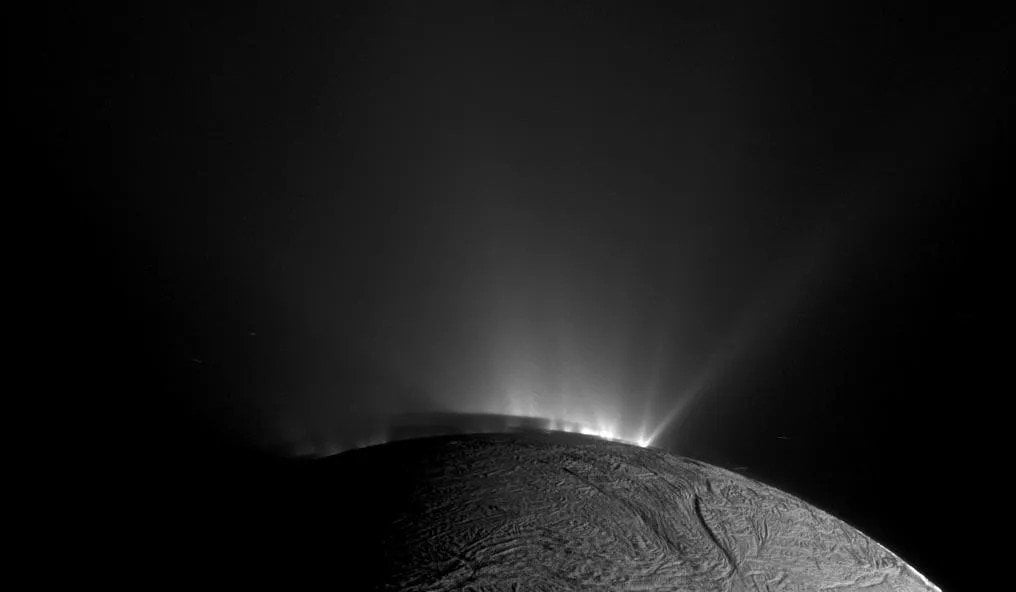Key ingredient for life found at Saturn’s icy moon Enceladus

Dec 17: When scientists search for places beyond Earth that could potentially host life, they don’t only consider far-off exoplanets. They are also interested in locations right here in our solar system — and some of the most promising locations are not planets but moons. Saturn’s icy moon Enceladus, for example, is thought to host a saltwater ocean beneath a thick icy crust, making it a potential location where life could exist.
Recently, researchers have found a key ingredient for life in the plumes of water that spewed from Enceladus’s surface. By analyzing data from the Cassini mission, they not only identified hydrogen cyanide but also found that the moon has a source of chemical energy that could fuel life as well.
“Our work provides further evidence that Enceladus is host to some of the most important molecules for both creating the building blocks of life and for sustaining that life through metabolic reactions,” said lead author Jonah Peter of Harvard University in a statement. “Not only does Enceladus seem to meet the basic requirements for habitability, we now have an idea about how complex biomolecules could form there, and what sort of chemical pathways might be involved.”
Cassini flew by Enceladus several times, beginning in 2005, and found plumes of water spraying from the surface, which indicated an ocean below. The spacecraft studied these plumes, and the data it collected continues to be analyzed for new findings like this one. Previous analyses have found evidence of compounds like carbon dioxide, but this is the first time that hydrogen cyanide has been found.
This is an important chemical for forming amino acids, known as the building blocks of life. “The discovery of hydrogen cyanide was particularly exciting because it’s the starting point for most theories on the origin of life,” Peter said.
Researchers previously found evidence of a process called methanogenesis on the moon, which creates methane. The recent research also found evidence of oxidization, which is important for releasing chemical energy.
“If methanogenesis is like a small watch battery, in terms of energy, then our results suggest the ocean of Enceladus might offer something more akin to a car battery, capable of providing a large amount of energy to any life that might be present,” said fellow researcher Kevin Hand of NASA’s Jet Propulsion Laboratory.
The research is published in the journal Nature Astronomy.
(Digital Trends)


Leave Comment